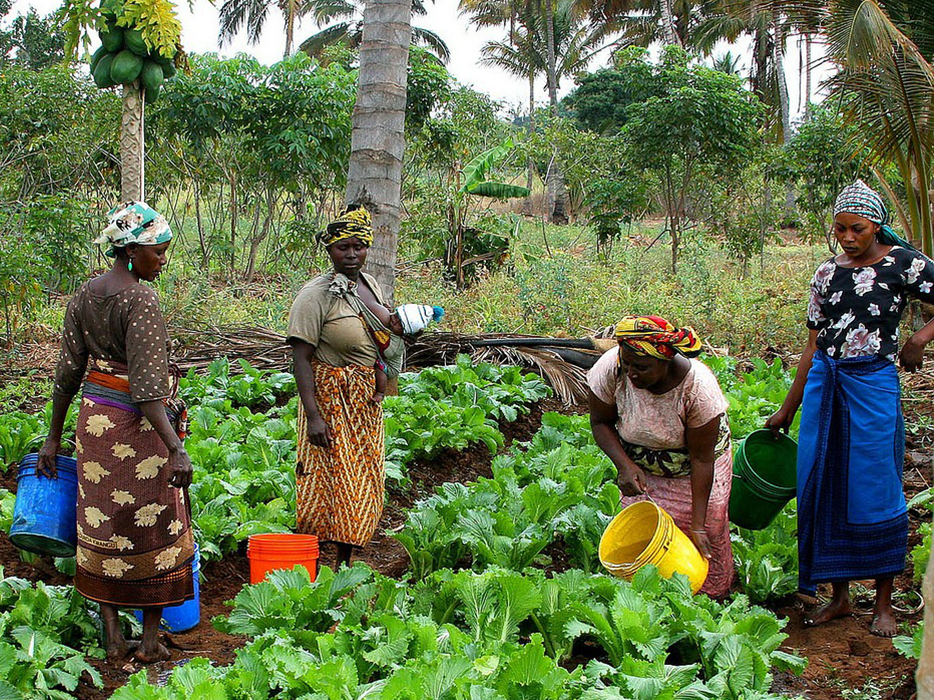Most of us don’t think twice about stopping at a coffee shop each morning. But did you know the cost of one cup of coffee is more than what hundreds of millions of people around the world live on in a day?
According to data from the United Nations, more than 700 million people are estimated to live under the poverty line of $2 a day. The large majority of these people live in Sub-Saharan Africa and South Asia.
Still more face chronic unemployment, underemployment, and a lack of basic services like clean water, roads, and electricity.
And we know poverty is sexist. It’s not just a fundraising campaign; it’s a fact. Women everywhere are disproportionately affected by poverty. About 155 countries have at least one law on the books impeding women’s economic opportunity. In 100 economies, women face gender-based employment restrictions.
What can we do to help? Historically, Canada has been able to tackle global poverty through contributions to multilateral organizations such as the World Bank and non-governmental organizations, or through its own programming.
One approach other G7 countries have been taking for some time is to engage the private sector to further its development agenda. In the developing world, entrepreneurs struggle to find the financing needed to grow their businesses, and, in turn, create jobs and reduce poverty. Investments in small- and medium-sized enterprises are typically seen as too risky by many international financial institutions, and even local banks have a limited risk appetite to support entrepreneurial ventures. There is a serious financing gap in developing countries, particularly in the poorest ones. For the first time, Canada is taking a step forward to help bridge the gap.
I am honoured to have recently been appointed to lead Canada’s new development finance institution, FinDev Canada. My challenge: to quickly establish a financial institution that will offer various forms of capital (loans, equity, investments, and bank guarantees) to help spur private sector growth in developing countries, drive substantial development impact, and make a difference in the lives of the people living there.
Here’s how we’ll carve out a niche for ourselves:
We will focus on women
Women are the cornerstone of development as they spend more on family expenses that improve livelihoods, like nutrition, medicine, and education. Investments that improve the lives of women and girls have been shown to have an impact not only on the individual, but on their families, their communities, their local economies and, as a consequence, countries along with them. As we move forward, we’ll be guided by Canada’s Feminist International Assistance Policy.
We will measure our impact on poverty
Development finance institutions are financial institutions, and, like all others, FinDev Canada is expected to be financially sustainable. But we won’t make decisions purely on financial grounds. Instead, all transactions must also show impact. Both sides of the equation are important to ensure our development impact is lasting, and companies will continue to thrive and grow even after our support.
We will look for green solutions
We can make a difference by not only creating jobs but also by bringing a ‘green’ approach to solutions that meet both business and social needs.
FinDev Canada will look at business opportunities in the areas of renewable energy, energy infrastructure, water, and sanitation, and work to ensure investments have an impact on improving the environment.
The benefit of being new is that we can learn from others. We can focus on what worked and ensure we do not duplicate what didn’t. We aim to be agile and innovative. Instead of setting requirements, we will listen to what clients need and design financial products that meet those needs.
This is a niche I have been working in for over a decade and I have witnessed the power of the approach.
We certainly can’t do it alone if we really want to make an impact on poverty. As we look forward, FinDev Canada seeks to mobilize other like-minded private sector partners to action.
With FinDev Canada, our country now has a more robust toolkit to complement its development objectives. I don’t doubt that the world is watching FinDev Canada’s first steps, and we will certainly increase the recognition of Canada’s international development efforts.
It is challenges like this that make me leap out of bed every morning.
